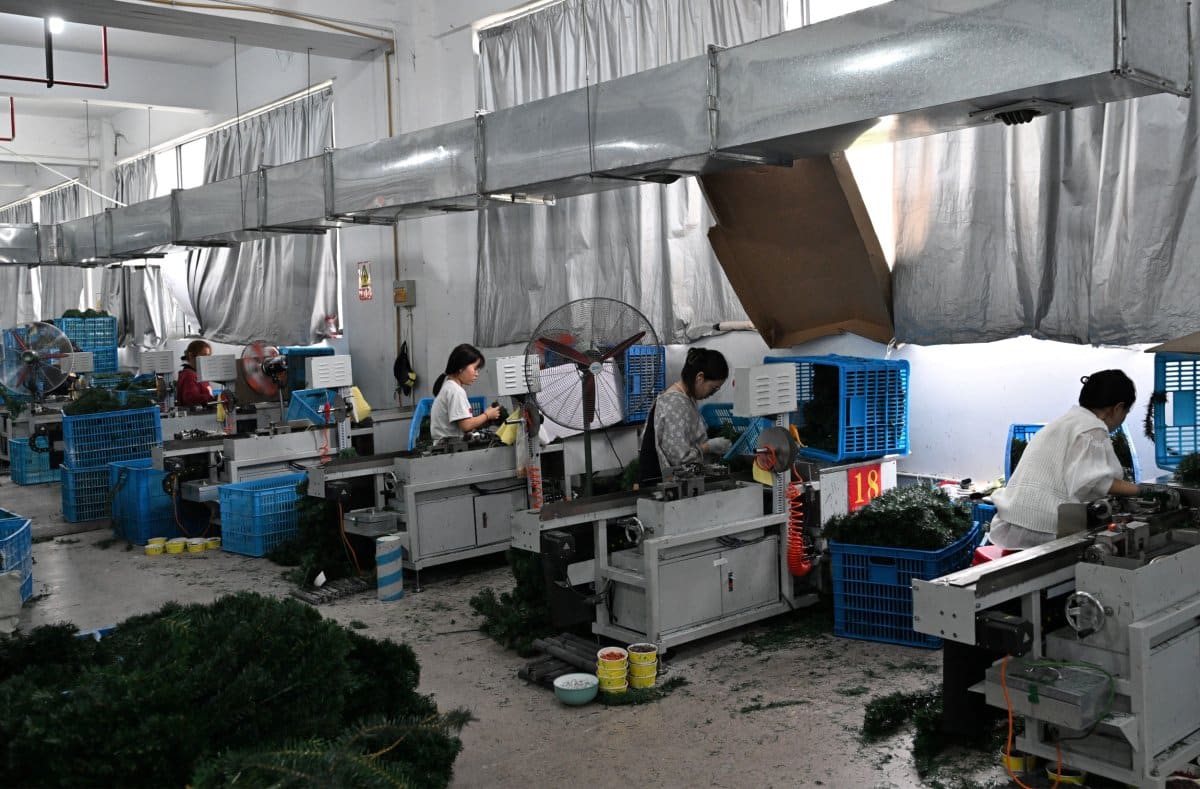TikTok Videos Urge Americans to Buy Directly from China

US TikTok users are witnessing a notable trend as Chinese content creators promote direct purchases from Chinese factories, seemingly as a response to the Trump administration’s tariffs. These viral videos, showcasing manufacturing facilities linked to popular US brands, suggest that Americans can bypass tariffs by buying directly from China. This movement has sparked discussions about the implications for US-China trade relations and consumer behavior.
Viral Videos Challenge Tariff Policies
A growing number of TikTok videos feature Chinese creators encouraging American consumers to purchase goods directly from Chinese factories. This strategy appears to be a direct challenge to the tariffs imposed by the Trump administration. In one popular video, a creator claims that luxury handbags can be bought for a fraction of their retail price in the US. For instance, TikTok user @LunaSourcingChina showcases a factory producing Lululemon yoga leggings for just $5 to $6, while retail prices in the US exceed $100. The creator asserts that the quality is comparable, raising eyebrows about the authenticity of such claims.
Lululemon has responded to these assertions, clarifying that only a small percentage of its products are manufactured in Mainland China. The company emphasizes that genuine Lululemon items are available exclusively through its official channels and partners. Despite the company’s efforts to clarify its supply chain, the videos continue to gain traction, with one clip titled “China exposed the truth” amassing over 8.3 million views.
Growing Trade Tensions and TikTok’s Role
The recent surge in these videos coincides with escalating trade tensions between the US and China. Analysts suggest that the TikTok algorithm is amplifying this content, potentially undermining US tariff policies. Alex Goldenberg, a senior intelligence analyst at the Network Contagion Research Institute, views this trend as a calculated effort to promote Chinese manufacturing while challenging the effectiveness of tariffs.
The legalities surrounding direct-to-consumer purchasing to avoid tariffs remain unclear, particularly with the impending expiration of the small-parcel duty exemption. Currently, Chinese goods face a cumulative tariff rate of 145%. Although the Trump administration has temporarily suspended additional tariffs on select nations, China remains excluded from these measures.
Implications for American Consumers and Brands
The viral TikTok posts raise significant concerns about the influence of Chinese creators on American consumers. As these videos gain popularity, they highlight the opaque nature of content distribution on the platform, prompting discussions in Washington about the need for a separation between TikTok’s Chinese parent company, ByteDance Ltd., and its global operations.
Beyond trade implications, these videos may also have legal ramifications. Some experts believe that disclosing factory information could violate non-disclosure agreements with global brands, potentially jeopardizing supplier relationships. Cameron Johnson, a senior partner at Tidalwave Solutions, interprets this trend as part of a broader shift in global sourcing practices, moving from traditional retail intermediaries to direct factory models. This shift could fundamentally alter how Americans shop and how brands manage their supply chains.
Observer Voice is the one stop site for National, International news, Sports, Editor’s Choice, Art/culture contents, Quotes and much more. We also cover historical contents. Historical contents includes World History, Indian History, and what happened today. The website also covers Entertainment across the India and World.

